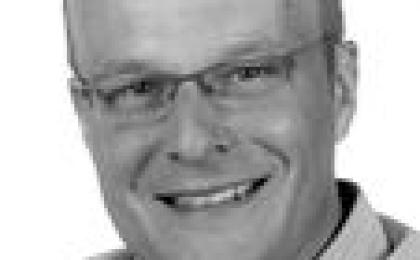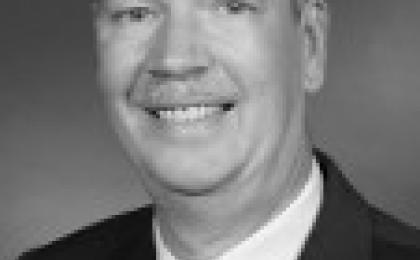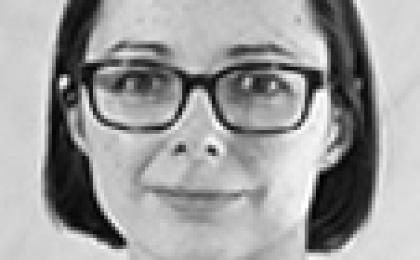Media Economics
The aim of the Media Economics division is to apply economic concepts and theories to the analysis of communication and media as a unique constellation in society. This area of research is part of publishing and communication science and also has links to business and economic science. The division analyses as well the effect of other academic disciplines on the application and development of areas of media economics. It also aims to establish appropriate, critical ways of studying media/communications and economics in interdisciplinary discourse and media practice with the help of theoretical models and empirical methods. Its work considers macro-, meso- and microperspectives.
The division believes that the academic community should view research and teaching programs on media economics and media management in publishing and communication science as well as in the field of business studies, which are typically considered two separate disciplines, as a single unit.
Furthermore, the division acts as a forum for specialist conferences and workshops, contributions to annual conferences and relevant international events. Finally, issuing regular academic publications, promoting young researchers and interdisciplinary exchange are also key parts of the work of the Media Economics division of the German Communication Association.
Media, Public Spheres and Gender
An understanding of the category of gender as an important structural element of any communication is the central common view of the members of the “Media, Public Spheres and Gender” division. In this way, media and communication-based gender research claims to engage with all fields of communication studies as critical research.
The “Media, Public Spheres and Gender” division started its work officially in 1990 as the “Working Group for Women’s Studies”. The group was founded by feminist scholars in media and communication studies who had worked on gender in media and public spheres years before. Crucial scientific works on the representation of women in the media, on the role of women in journalism or in PR, on the specific modes of women’s reception emerged during this period.
Women’s studies, understood as feminist research, is normatively grounded. The aim of the group is to contribute to the change of gender structures in and through/by media and thus to gender equality and justice in societies.
The theoretical development from women’s studies to gender studies is visible in the current name of the “Media, Public Spheres and Gender” division. Whether in media production, media texts and representation or audience reception research – in all fields, the question arises of the immanent relevance of the category of gender in the construction of mediated realities.
Communication History
The Communication History Division’s objective is to study the full breadth of mediated (public) communication in historical perspectives. This includes historical research on the means, conditions and transformations of production, of distribution and usage of mediated communication and its impact on societies or individuals in different time periods. The division is especially interested in how media institutions, roles of media professionals, media contents or audiences change and evolve over time and the complex interrelations of media change and changes in culture and society. Furthermore the history of the field communication studies and the interpretation of its research in relation to scientific and social contexts, questions of methodology as well as affordances of access and perseveration of sources for historical communication research are at the heart of the division’s interests.
The Communication History Division promotes the historical perspectives in communication research and the representation of such perspectives in both academic research and university education. The division advocates the interests of historical communication researchers and especially aims to bring together and support early career scholars in this transdisciplinary area of expertise. The division’s annual workshops provide a space for exchange or initiate discussions of current problems and challenges of media and communication historiography. Results and findings of workshops are usually published in edited volumes or special issues of academic journals. Members are furthermore regularly informed about the ongoing activities of the division and the German Communication Association as a whole. This also includes information about academic events of related associations, in media and communication studies as well as in topically related disciplines like history. By organizing joint division workshops, the division aims at developing relations with other thematic divisions of the German Communication Association or other academic associations that are active in related fields or address similar research problems.
Journalism Studies
The division comprises members of the German Communication Association who work or have interests in the field of journalism theory, practice, research and education. Academics and practitioners at all stages of their professional career are welcome to join.
The division aims to provide a forum to promote the academic field, journalism as a profession, and professional education in journalism. Members of the division apply a wide array of theoretical, epistemological and methodological approaches, contributing to a pluralistic marketplace of ideas. The division organizes annual conferences where these diverse perspectives are presented and discussed. To ensure high quality and promote cutting-edge theoretical thinking and empirical studies, all submissions to conferences are subject to double-blind peer review. Conferences serve to document and inform about the history, developments, and state of the art of the profession, education, and the discipline to stimulate (inter)national collaboration and support young scholars’ careers in order to safeguard the next generation’s excellence. By regularly collaborating with other divisions of the German Communication Association and other academic and professional associations, networks among academics and/or practitioners are established and enlarged, information flow is enhanced, and multi-perspectivity is encouraged. The division also organizes business meetings and disseminates regular mailings. In addition to conferences, these tools serve to establish communication among members and ensure that members stay informed about the ongoing activities of the German Communication Association in general.
The Code of Ethics of the German Communication Association (DGPuK)
The German Communication Association has a Code of Ethics (COE) to ensure that all research, teaching, and professional conduct are of the highest standards. The members of the German Communication Association avow to their social responsibility and thus oblige to base their scientific, educational, and professional work on the association’s COE.
Responsible Conduct in Research and Teaching
The COE aims to sensitize members to the ethical issues related to their work and to encourage the critical reflection of their professional conduct. Members with teaching responsibilities in Germany’s higher education system are asked to convey the principles of the COE to their students and ensure their ethical behavior in research and professional conduct.
Guiding Principles
General principles of the COE are the agreed moral norms of our modern society, namely fairness, respect for and responsible conduct with people, commitment to truthful and transparent research and publication practices, social responsibility, the mandate of democratically-oriented research and teaching, as well as a regard for nature and nature’s limited resources.
The COE outlines the principles for the work of the DGPuK’s Ethics Committee. Individuals who bring complaints before the Ethics Committee must not experience disadvantages from their actions.
The DGPuK’s Code of Ethics is in agreement with current COEs by neighboring disciplines such as the German Sociological Association, the German Association for Political Science, and the German Educational Research Association.
Contact
The current members of the Ethics Committee are:

Professorship for Media Ethics
alexander.filipovic@hfph.de

Prof. Dr. Bernd Blöbaum
University of Münster
Department of Communication (IfK)
bernd.bloebaum@uni-muenster.de
Health Communication
The health communication division started as an ad-hoc group within the German Communication Association (DGPuK) in November 2012, and became an official DGPuK division in March 2016. It is concerned with theories, empirical research, and applications related to the roles of communication processes and information for health promotion, health education, and health practice. The division welcomes interdisciplinary research from a wide array of theoretical, epistemological and methodological approaches. Areas of research include health campaigns, news coverage about health topics and health systems, provider-patient interaction, eHealth and mHealth, health information seeking, and health policy. Having more than 100 members, it provides a platform for exchanging and discussing ideas, and for promoting the professionalization of health communication activities in science, practice, and teaching. Although being primarily a scientific grouping, insights from practitioners are welcomed and actively sought.
Public Relations and Organisational Communications
Vision and Mission
The activity of the Public Relations and Organisational Communications Division is centered around research on communication within, about, and by organisations. The division represents and supports the interests of members of the German Communication Association who are engaged in research and lecturing on issues and questions about public relations and organisational communication.
Until today the reflection of public relations and organisational communication within communication science and media studies falls short given the increasing relevance of strategic communication practices in the public sphere. Therefore the objective of the division is to address problems and challenges concerning public relations and organisational communication more intensively and to enhance the quality and quantity of research on related topics in communication science and media studies as well as within the German Communication Association.
Persistent research deficits can be found particularly in the development of consistent and valid conceptual approaches, but also in the systematic and comprehensive empirical study of practices and effects of public relations and organisational communication beyond single case studies. The division consequently aims at the encouragement and support of research that contributes to theory building and substantiated empirical research on public relations and organisational communication.
The primary objectives of the division are:
- Information on and coordination of activities in research and lecturing on public relations and organisational communication
- Organisation of regular annual conferences
- Support of research in communication science that focuses strategic communication within and by organisations
- Encouragement of discourse and exchange with the scientific community
- Promotion of public relations and organisational communication research as an obligatory part of graduate and undergraduate programs in communication science
- Support of young scholars
- Enhancement of international and interdisciplinary collaboration
- Facilitation of exchange between research and practice
Core functions
The division organises annual conferences and workshops for the presentation and discussion of research topics, projects, and results within the scientific community. These occasions also provide a forum for the exchange of knowledge between public relations and organisational communication practitioners and researchers. Workshops and meetings of the division further give young scholars the opportunity to present and discuss their own research projects within the scientific community.
Moreover, the division arranges subject-specific panels at the annual conferences of the German Communication Association to support the visibility of public relations and organisational communication research and to intensify its presence within the German Communication Association.


